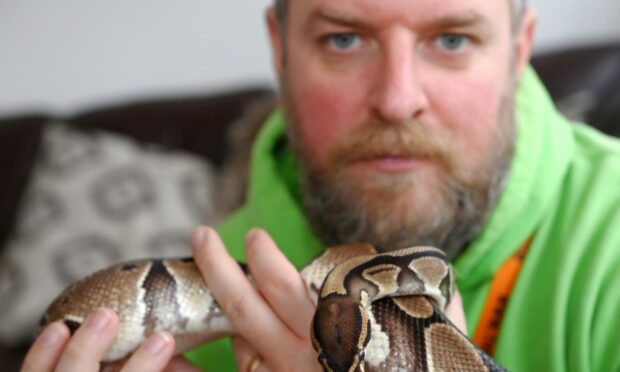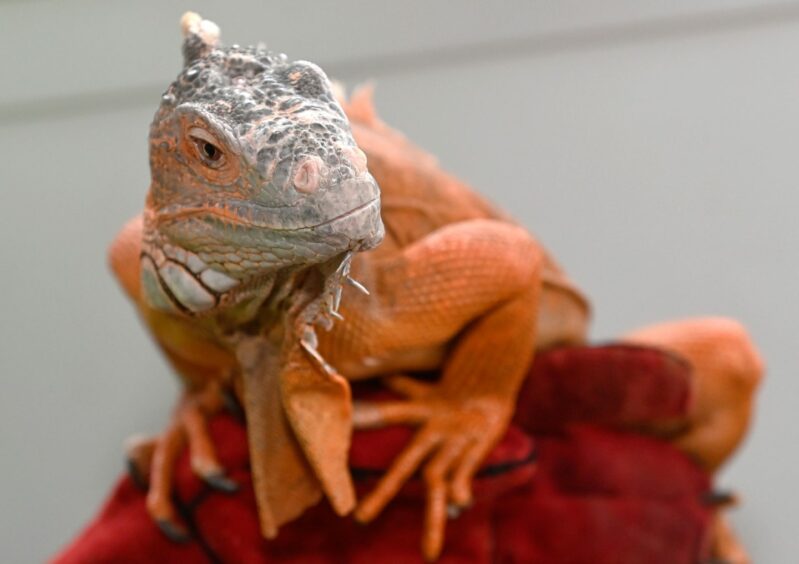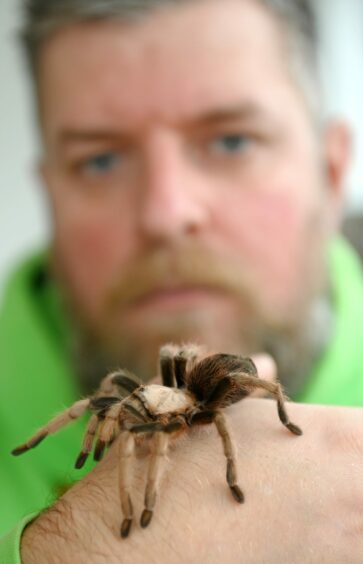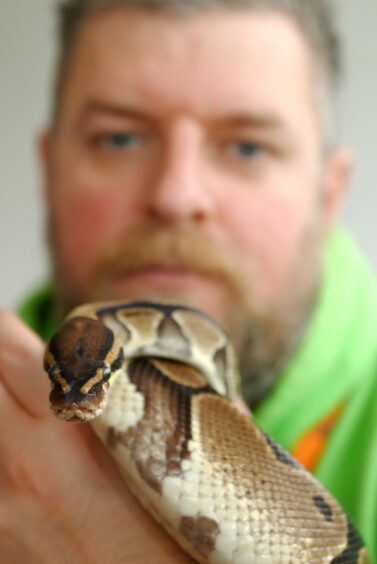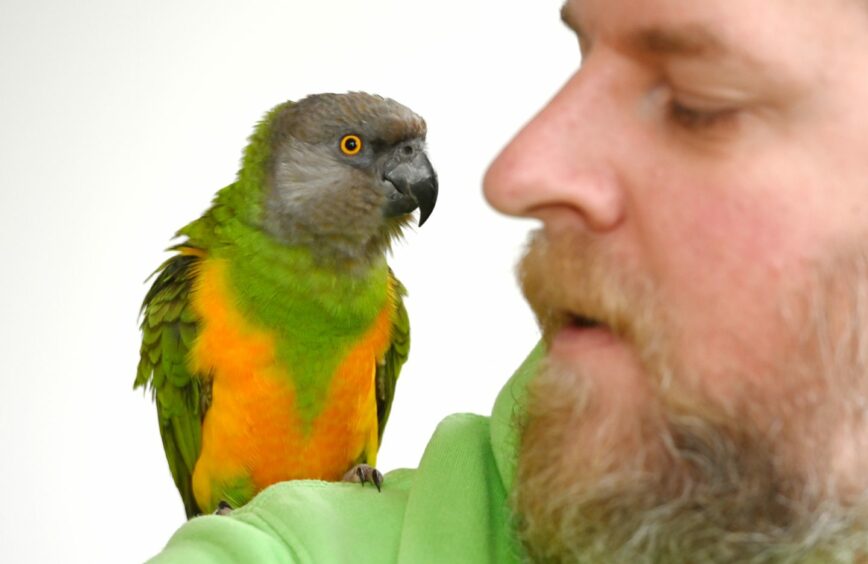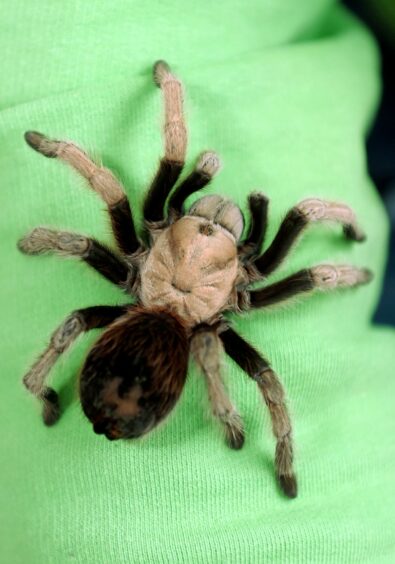Chances are, you’ve come across The Critter Keeper and his gang of not-so-furry friends.
Be it a birthday party or school visit, there’s no missing the chap who keeps 30 different species of spider – but rest assured he doesn’t bring the many-legged crew along for each session.
From Giant African Land Snails to Popeye the Senegal parrot – the only member of The Critter Keeper family who gets to ride shotgun.
But come lockdown and with all events cancelled, the keeper, who is less widely known as David Low, was left with no audience, and no income to foot the expensive food bills for his eclectic tribe.
your life caught up with David, and found out why people from all over the world have been able to enjoy The Critter Keeper – from his home in the north-east.
David has just completed his first trip to a care home since lockdown when we catch up, and it’s clear that this was a very special visit.
You might not think that pythons and pensioners go hand in hand, but David is passionate about the link between animals and mental health.
“Care home visits were very popular prior to the pandemic, I even made a video with the care inspectorate at a care home in Fraserburgh,” says David.
“To enjoy life within a care home, you have to improve the mental health of the residents.
Allowing people to touch and hold animals has a huge mental health benefit
“When we visit schools, children can be a little wary. But care home residents are game for anything.
“They’ll ask to hold the tarantula, some have no fear whatsoever.
“It’s a chance to see and learn and they can find it fascinating, because it’s stuff they didn’t know.
“Some older people have never touched or even seen a snake before.
“But when the pandemic hit, we weren’t allowed anywhere near care homes.”
David went from having a fully booked diary to no bookings at all, and decided to start making videos for his own mental health.
I was really down like quite a lot of people, my main source of income had disappeared overnight,” says David.
“My main concern was looking after the animals, but I felt like I didn’t really have a purpose.
“So I decided to just carry on with what I was doing, but over Facebook Live. It gave me a reason to get up, if you like. It kept me sane.
“It was free for anyone to watch with an option to donate, which people did. But it was never about that, it was allowing people to see the animals I have, and an opportunity for children to learn.”
Soon David got a regular audience with thousands of people flocking to his Facebook page.
This led to private Zoom sessions for a small fee, with people tuning in from as far afield as Kuala Lumpur.
“I had to get up pretty early to do that one,” jokes David.
But how does a former paper mill worker stumble upon such an unusual career in the first place?
David tells me that it all stemmed from childhood, and an incident with his sock drawer.
“I was born here in the north-east, but we moved down to Devon,” recalls David.
“The weather is a lot kinder, so there are more reptile species native to the UK.
“At the bottom of the school playground, there was a wall where common lizards lived.
“I put some in my lunchbox and took them home. I thought the best place for them would be my sock drawer.
“Obviously my mum wasn’t too pleased when she opened it.”
David eventually returned to Scotland, where his wife “tolerated” his love of creepy crawlies, including Mexy, a Mexican Red Leg tarantula.
“My wife is a primary school teacher, and she asked me if I could come into her class and do a talk,” says David.
Word spread, and David decided to leave his job of 15 years after he was inundated with birthday party requests.
“I realised there wasn’t anyone in the north-east of Scotland who could show people animals,” he says.
Due to the nature of the job and the limelight I received, a lot of people got in contact with me about unwanted pets
“We became a rescue centre and now there’s just under 80 animals, who live in a building made especially for them.”
Turtles, lizards and even a raccoon, no one can hold a candle to Popeye the parrot in David’s eyes.
“He belonged to an old gentleman who was diagnosed with dementia. Parrots can bond exceptionally well with a human companion,” he says.
Popeye blamed the neighbours for his owner disappearing, he hated them and they were scared of him
“I persevered as I understand how these animals work. Eventually he realised that I’m actually quite nice, and he’s my cheeky little friend now.
“He’s extremely sociable and very loyal.
“I don’t class this as a job, because I get to work with some pretty amazing animals and I see people all over the north-east, from all walks of life.”
